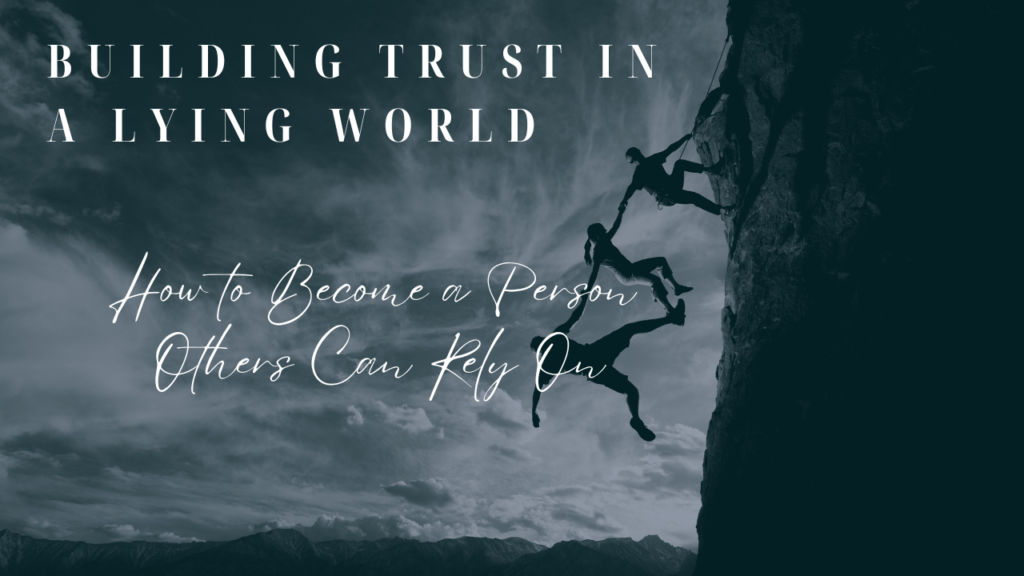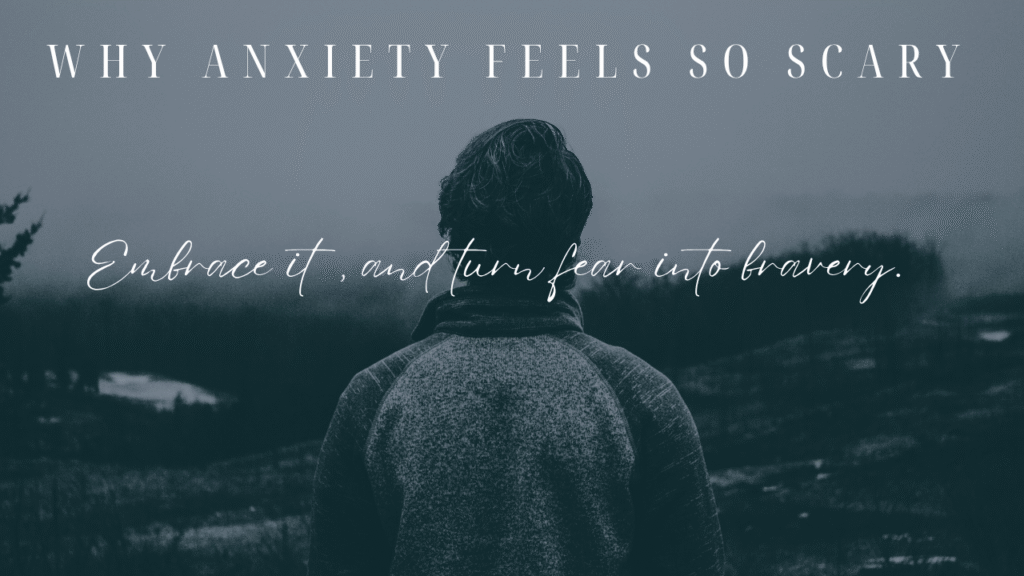It’s getting harder to trust people. That’s just the truth.
You don’t need stats or some study to prove it—you’ve lived it. People say one thing, then do the opposite. They make promises, disappear, and leave you holding the weight they dropped. Even in places where trust should be sacred—church, family, close friendships—it still gets broken. Not always on purpose. But that doesn’t really make it hurt less.
So after a while, you stop expecting much. You lower the bar. You keep your guard up. You nod politely when people talk, but inside you’re thinking, “Sure, we’ll see.”
And maybe that’s the culture we live in now. Everyone talks big. Everyone’s selling something. Everyone’s trying to look better than they really are. So trust becomes this rare thing that’s harder and harder to give.
But here’s what nobody really talks about: while everyone’s out there trying to figure out who they can trust… few people are stopping long enough to ask: Am I someone others can trust?
That’s the question that matters. That’s the one that turns everything around.
Because in a world full of over-promising and under-delivering, the ones who live with quiet, steady reliability stand out like light in the dark. And not in a flashy way. But in a way that makes people exhale and think, “Okay. I can count on them.”
And that’s worth something.
So how do you become that kind of person?
Don’t say it unless you mean it—and unless you’ll follow through
This is probably the simplest place to start, and also where most people mess it up.
If you say you’re going to do something, do it. Not just when it’s convenient or when there’s something in it for you. Do it because your word matters—even when nobody else is checking.
You don’t need to overpromise or act like you’ve got it all together. In fact, it’s better if you don’t. Say less, and do more. If you say “I’ll be there,” show up. If you say “I’ve got you,” then mean it—even if it costs you something.
People can feel the difference between someone who’s dependable and someone who just likes how being dependable sounds.
If your pattern is starting strong but fading fast, people will stop relying on you. And they probably won’t tell you. They’ll just quietly adjust their expectations and put you in the “probably won’t come through” category.
You can climb back out of that category. But only by doing what you said you’d do. Over and over. Especially when it’s inconvenient.
If it’s not true, don’t say it—even if it makes you look better
We’re all tempted to bend the truth when it paints us in a better light.
You exaggerate how involved you were. You leave out the part that makes you look a little selfish. You soften the edges of the story so you can still come out looking like the hero.
But here’s the thing: people notice. Even if they don’t call you out, they feel it. And the more they catch you spinning the truth to protect your image, the less they believe anything you say.
If trust is what you’re after, honesty has to matter more than appearances.
You’ll mess up. You’ll fall short. You’ll miss deadlines or forget things or say the wrong thing. That’s not what breaks trust. What breaks it is pretending you didn’t. What breaks it is blaming or covering or spinning it just enough so you still look fine.
People will respect your honesty more than your performance.
Say the hard thing. Admit when you’re wrong. Own the moment, even if it makes you squirm. That’s how trust is built.
Do what’s right—especially when no one’s looking
This part right here? This is the dividing line.
It’s easy to act honest when people are watching. It’s easy to clean up your image and talk about “character” in front of a group. But when no one’s watching… when no one would know the difference… when you could get away with something?
That’s when it shows.
What do you do with the money that wasn’t yours?
How do you talk about people when they’re not in the room?
What kind of thoughts are you feeding when you think nobody’s watching?
That’s where trustworthiness starts. In the invisible. In the quiet. When it’s just you, your conscience, and God.
And the truth is, it always comes out eventually. Not in big explosions—usually just in subtle ways. People feel when something’s off. They pick up on the disconnect between your words and your patterns.
So if you want to be someone others can count on, start by being someone you can look in the mirror and respect.
Be the same person in every room
Nobody trusts a chameleon. If you’re one way with your church friends, another way with your coworkers, and a totally different person when you’re with people who don’t know you that well—people might not say anything, but they’re clocking it.
It’s disorienting. And it makes people wonder: Who are you really?
Consistency doesn’t mean being rigid or robotic. You can adapt without being fake. But if people never know which version of you they’re going to get, it’s hard to feel safe with you.
And that’s what trust is—safety.
When you’re the same person in every room, people relax around you. They don’t have to second-guess your motives. They don’t have to wonder if you’re performing. They know who you are, and they believe it’s real.
That’s a gift.
And in this kind of world—where so many things are fake, curated, polished, and hollow—that kind of steady authenticity is rare.
Be rare.



